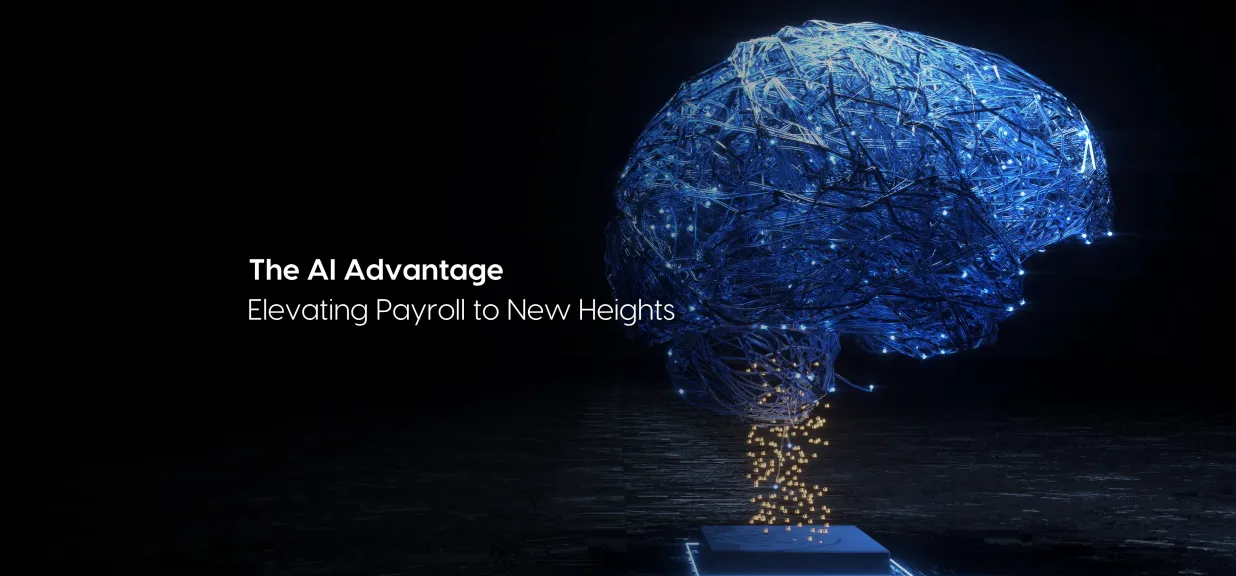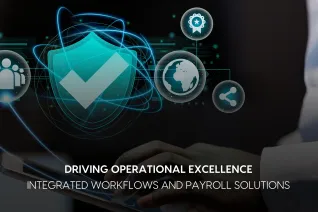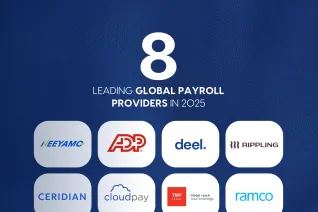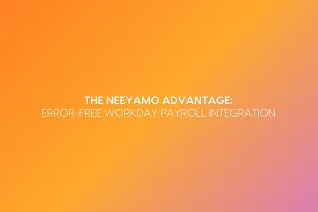Smart Payroll: Balancing AI and Human Expertise

Over the past decade or so, AI has permeated many different areas of business operations – and payroll is no exception. The potential of this transformative technology is clear, but enterprises need to proceed with an element of caution and strike the right balance between AI and human expertise in order to achieve sustainable growth. Get this balance wrong and you risk falling behind your competitors or even facing costly regulatory or financial repercussions.
While the technology has experienced a rapid rise to prominence in the corporate world, not everyone is embracing it in the same way. However, rather than seeing it as a threat, payroll professionals should adapt and augment their working style with the support of Artificial intelligence (AI) technology: the benefits of doing so are clear. This transition has to be led by employers, by offering training programs and putting a framework in place to guide internal use of the technology.
What is the impact of AI on payroll?
AI is ushering in a new era of efficiency and accuracy, transforming traditional payroll processes in remarkable ways. One of the most significant impacts is the automation of repetitive tasks such as data entry, calculations, and compliance checks. AI-powered systems can now handle these activities more quickly and precisely than humans, significantly reducing the workload while also minimizing the risk of human error – which can be costly and time-consuming to rectify. Stats tell us that automating payroll can reduce processing costs by up to 80%.
Another crucial advantage of AI in payroll management is its ability to navigate complex global tax compliance requirements. Advanced AI systems can efficiently process and interpret tax regulations across multiple jurisdictions, providing organizations a streamlined approach to maintaining compliance worldwide. For instance, Neeyamo's Gen AI-powered solutions demonstrate how this technology can transform global payroll operations by seamlessly handling complex tax regulations across different countries.
The time saved through AI-driven automation allows payroll professionals to shift their focus from mundane tasks to more strategic roles and contribute to business decisions that drive growth and efficiency. This shift not only adds value to the organization but also enriches the roles of payroll professionals, making their work more fulfilling and impactful.
Another crucial advantage is improved accuracy. AI algorithms excel at analyzing vast amounts of data quickly and accurately, ensuring that payroll calculations are precise and up-to-date in accordance with the latest tax codes and labor laws. This capability can enhance compliance, reducing the likelihood of legal issues or penalties arising from discrepancies or outdated information.
ALSO READ: Revolutionizing Payroll with AI and Machine Learning
Upskilling in AI
In order for this technology to have a tangible, positive impact on a business, employees need to be trained on how to handle AI tools properly. Training in this area shouldn’t be viewed as a one-off, box-ticking exercise, since the technology is rapidly evolving and new tools are constantly entering the market. In order to stay competitive, AI training needs to be an ongoing process; engaging in continual education and development ensures that payroll professionals remain up to speed and can adapt to new AI-driven technologies.
Implementing AI in payroll requires strategic financial planning. While the potential for cost savings is significant, AI implementation should be viewed as a strategic investment rather than a pure cost center. Organizations should develop a comprehensive budget for immediate expenses and projected long-term benefits.
How to overcome employee concerns?
The integration of AI in payroll is not without its challenges, and it’s natural for an AI-led transition to be met with some resistance from members of your team. This revolutionary way of working is new to us all, and its rapid rise to prominence can be particularly unsettling for professionals who are worried about their skills becoming obsolete in the workplace.
As a business owner or manager, it’s important not to overlook these concerns. Addressing employee concerns requires a transparent approach to data security. In addition to access control and encryption protocols for payroll data, organizations must implement multi-layered security approaches that combine AI-driven threat detection with human oversight and regular compliance checks. With a training program, usage guidelines and a culture of constant feedback in place, businesses can ease the worries of payroll professionals.
ALSO READ: Ethical AI in HR: Considerations and Best Practices
Optimizing payroll with AI
Emerging trends are transforming how AI will support payroll functions. Machine learning models are developing capabilities to predict payroll anomalies, recommend compensation adjustments, and provide strategic workforce insights.
While the future of AI in payroll remains dynamic, we have already seen the technology have a revolutionary impact on the payroll landscape, offering unparalleled benefits in terms of time savings, accuracy, and strategic focus. By embracing these changes and adapting accordingly, payroll professionals can enhance their roles and contribute more significantly to their organizations' success. To know more, reach out to us at irene.jones@neeyamo.com.
Latest Resources
Stay informed with latest updates
If you're curious and have a thirst for knowledge pertaining to the HR, payroll, and EOR universe, don't miss out on subscribing to our resources.















